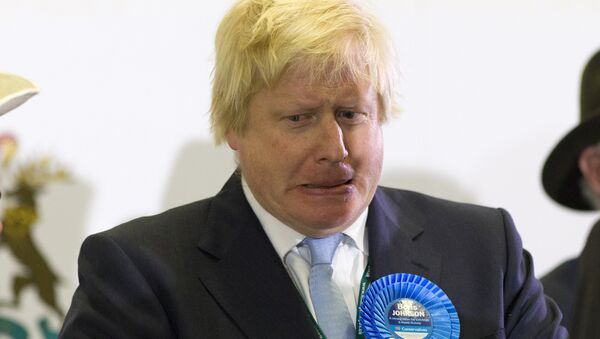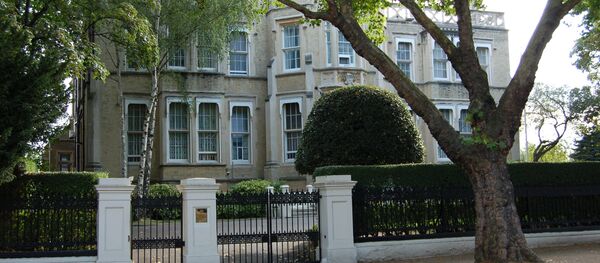'Victim of Russian Hospitality'
Spiked food, hacking, honey traps, sleep disruption tactics and more are what British Foreign Secretary Boris Johnson must be wary of during his upcoming visit to Russia, according to the chair of the British parliamentary group on Russia.
In an open letter published in The Times, Labour MP Chris Bryant claimed he had been subjected to "Soviet-era tactics" aimed at pissing him off during talks. He warned Johnson not to bring his mobile phone with him to Russia because the Russian Federal Security Service (FSB) could tap it.
He advised Johnson to change his hotel room in the nick of time, in order to distract those who would be watching him.
"This brings up a question. If such a piece of advice is being spoken publicly how could it catch anybody off guard?" RIA Novosti contributor Vladimir Kornilov wrote in an op-ed.
Bryant also claimed that during a visit to Moscow and Nizhny Novgorod in January 2010, his hotel room was rigged up to "discombobulate" him.
"Staying in a hotel, my phone rang every hour, on the hour, through the night, with nobody at the other end – and it was a phone you couldn’t pull out of the wall," Bryant wrote.
"Unfortunately, no one explained to him who and why it was happening. At the very least, he could’ve picked up the phone and left the handset on the table," Kornilov noted.
READ MORE: UK Foreign Minister Johnson Sees No Trace of Russia's Influence on Brexit
The lawmaker also advised Johnson not to drink Russian vodka and avoid food as it could be spiked. He said during his visit to Russia he was the only person in the delegation to have stomach problems.
Finally, Bryant claimed that Johnson should ignore hospitality and especially avoid beautiful Russian women who could try to collect information from him.
He wrote: "If a beautiful woman suddenly joins you, or knocks on your door, be on your guard. More importantly, be boring. Really, really boring. Aim for the headline 'Boris bored for Britain.' I know this may be tough for you. I hate being boring too, but the Russians will be keen to embarrass you."
This whole story may sound like a bad joke, but it is really what a British lawmaker wrote. "Think about it. These are serious instructions from a 'victim' of Russian hospitality. Is that not paranoia, right?" Kornilov noted.
A number of Western politicians, officials and businessmen regularly visit Russia, and the question now is how is it possible that they all came back home safe and sound?
'A New Risk'
The bad joke, however, continued with a statement by the chief of the British defense staff officer, who claimed that Russian submarines could cut UK’s undersea Internet cables.
Peach continued with an even more mind-bending claim. Speaking about the conflict in eastern Ukraine, he said that in 2014 Russian artillery working with drones had wiped out two brigades of the Ukrainian military within minutes.
"The British marshal claimed that some 4,000-5,000 Ukrainian troops had been killed by the Russian military within minutes. According to official information from the Ukrainian Defense Ministry, a total of 2,500 personnel have been killed in the conflict. Apparently, Britain has its own information, never published before," Kornilov wrote.
Despite US Sanctions
According to the author, the claims about the "Russian threat" do not prevent London from making energy deals with Moscow. The recent closure of a major North Sea pipeline after a crack was discovered has raised concerns of a gas shortage in the UK. Britain quickly turned to Russia and bought a shipment of liquefied natural gas (LNG) from the Yamal LNG project.
According to the author, the deal confused many British "experts on Russia," especially taking into account the fact that the Russian energy company Novatek that operates the Yamal LNG project has been under US sanctions since 2014.
"So, it seems there will be more scary stories about Russian during this Christmas holiday in Britain. This is what 'evil Russians' look like. They could have cut off Britain’s Internet cables but instead have helped save its economy," Kornilov concluded.



